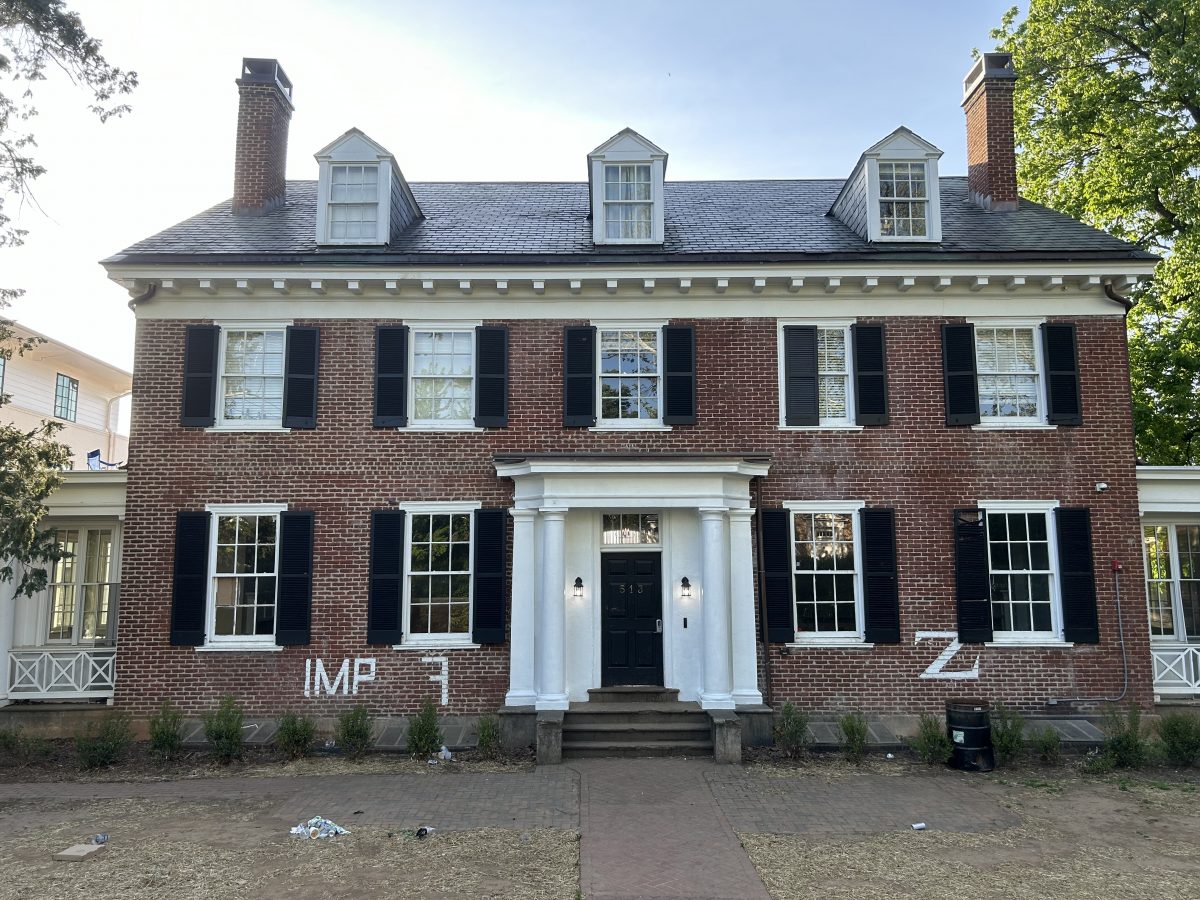On April 18, 10 days after the termination of its fraternal order agreement with the University of Virginia, the Pi Kappa Alpha fraternity posted an unlisted video to its YouTube channel.
In the video, Justin Buck, the national organization’s executive vice president, sternly addresses his fraternity brothers.
“For the first time since March 1, 1868, Pi Kappa Alpha is without its Alpha chapter,” Buck says, referencing the organization’s founding at 47 West Range on the edge of Jefferson’s historic Academical Village, marking the UVA chapter Pi Kappa Alpha’s first (or “Alpha”) chapter. “The chapter [was] expelled from the University of Virginia for a minimum of 4 years … following the confirmed, detestable, and abhorrent hazing activities by individuals.”
Pi Kappa Alpha representatives did not respond to a request for comment for this story.
“The University found that Pi Kappa Alpha engaged in serious hazing behavior and decided to terminate the chapter’s fraternal organization agreement with the University,” says UVA Deputy Spokesperson Bethany Glover via email. “In addition, the Policy, Accountability, and Critical Events (PACE) unit in Student Affairs initiated disciplinary action against individual students for their alleged involvement in hazing.”
Aside from Pi Kappa Alpha’s termination, two other fraternities had their FOAs suspended pending an investigation: Theta Chi and Sigma Alpha Mu. If the charges are validated and confirmed, it would be the first time both organizations have had their FOAs revoked.
It is, however, far from Pi Kappa Alpha’s first time in trouble, and that includes its Alpha chapter. The Cavalier Daily reported in 2022 that the university had terminated the FOA of both Pi Kappa Alpha and Sigma Nu in 2014, but they appealed the decision, and both frats were accepting new members in 2015. Glover did not provide a comment on the 2014 incident by press time.
The fraternity’s history of controversy goes back much further nationwide with over a dozen incidents reported in the last 20 years. As early as 1976, when a pledge at Texas Tech was killed by a train during a hazing activity described as a “scavenger hunt,” the fraternity has fought to keep itself on the straight and narrow—and not just for hazing. In 1988, a sexual assault was alleged to have occurred at the fraternity’s house on the campus of Florida State University. More recently, in March of 2021, the fraternity was again the subject of nationwide outrage when Stone Foltz, a pledge at Bowling Green State University, died due to alcohol-induced heart arrhythmia.
Details about the recent incident at UVA have yet to be released publicly, but thanks to Adam’s Law, named for Adam Oakes, a VCU student who died in a hazing incident in 2021, the university is legally required to post the details on its school website.
“Thanks to the transparency laws in Virginia, you’ll be able to read about [the incident] for the next 10 years on the University of Virginia’s website,” Buck says. “We will have a constant reminder of the embarrassment that these men have caused our fraternity. However, it will not be the names of these individuals who will be listed on this website, although they should be. It will be the name of our fraternity.”
Buck says the national Pi Kappa Alpha organization will seek civil litigation against the president and the leadership of its Alpha chapter for the “financial and reputational damages” caused by the incident.
Glover says the timeline for the release of the details in all three fraternity actions is in “the coming weeks.”
“The university does not tolerate hazing activity,” she says, “and we act quickly to investigate and pursue necessary disciplinary action when reports are made.”
